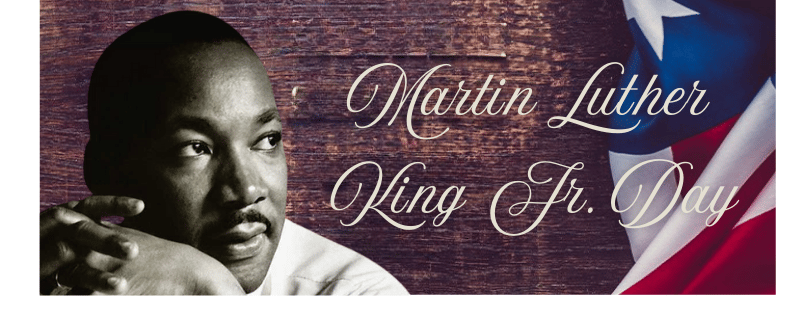Martin Luther King Jr. Day 2025: A Celebration of Legacy and Service
Martin Luther King Jr. Day, observed on the third Monday of January, honors Dr. King’s legacy and his contributions to the American civil rights movement. The holiday was officially established in 1983 by President Ronald Reagan and first observed in 1986. Dr. King’s advocacy for nonviolent resistance and racial equality transformed American society, influencing civil rights legislation and the national conversation on justice. The day serves as a reminder of the ongoing struggles for equality and social justice, encouraging individuals to engage in service, community projects, and educational events. In 2025, the themes for the day include unity, service, and social justice, reflecting Dr. King’s vision of a harmonious, equitable society. Unity focuses on fostering understanding across different communities, while service highlights the importance of contributing to the common good. Social justice remains a key theme, addressing the ongoing challenges of inequality and discrimination in modern society. Across the U.S., various events such as parades, volunteer opportunities, and community discussions take place to celebrate Dr. King’s ideals and inspire action. Volunteers can participate in projects like food drives, mentoring, or community clean-ups, reflecting Dr. King’s call for active involvement in improving society. Reflecting on Dr. King's legacy encourages ongoing education, advocacy for civil rights, and daily acts of kindness, continuing the work toward a more just and inclusive world.
USAGEO-POLITICS


Understanding Martin Luther King Jr. Day
Martin Luther King Jr. Day is a federal holiday in the United States, observed annually on the third Monday of January. This day honors the legacy of Dr. Martin Luther King Jr., a pivotal figure in the American civil rights movement. His commitment to nonviolent protest and advocacy for racial equality significantly influenced American society's outlook on justice and civil rights. The holiday was established in 1983 when President Ronald Reagan signed the legislation, with the first official observance taking place on January 20, 1986.
The establishment of Martin Luther King Jr. Day was a collective realization of the necessity to recognize Dr. King's contributions towards achieving equal rights for African Americans and other marginalized groups. The holiday serves to remind us of the struggles and sacrifices made during the civil rights movement and the ongoing fight for social justice. Dr. King’s advocacy for nonviolent resistance as a means to combat racial segregation and discrimination has left a profound impact on civil rights legislation in the United States.
Throughout the holiday, individuals and communities are encouraged to engage in acts of service, reflecting Dr. King’s belief that one person has the power to create change. Many participate in community service projects, educational activities, and commemorative events that celebrate his legacy of peace and equality. This observance also serves as a platform for conversations about social justice and the work that remains in addressing inequalities in society.
As we observe Martin Luther King Jr. Day, it is essential to remember the principles that Dr. King championed—justice, equality, and service to others. This day not only memorializes an incredible leader but also invites each of us to participate in making our communities better, echoing the spirit of Dr. King’s dream for a just and equitable society.
Themes for Martin Luther King Jr. Day 2025
Martin Luther King Jr. Day, observed annually in January, serves as a powerful reminder of the ideals and principles that Dr. King championed throughout his life. For the year 2025, several themes have been designated to guide the celebrations and reflections on his enduring legacy. These themes include unity, service, and social justice, each integral to understanding Dr. King’s vision and its application to contemporary societal issues.
Unity stands as a cornerstone of Dr. King's teachings. He envisioned a world where individuals of all races and backgrounds could come together in harmony, setting aside differences for the common good. In today's increasingly divided society, this message resonates profoundly. Promoting unity encourages dialogue among diverse groups, fostering an environment where understanding and cooperation can flourish. As we honor Dr. King’s legacy, it is crucial to examine how we can act upon this theme to bridge divides and cultivate a spirit of inclusiveness within our communities.
Service, another vital theme, encapsulates Dr. King’s belief in the importance of giving back to society. He famously stated, "Life's most persistent and urgent question is, 'What are you doing for others?'" In 2025, the focus on service calls on individuals and organizations to engage in acts of kindness, volunteerism, and community improvement. This theme not only highlights the value of selflessness but also serves to mobilize communities to address the prevalent challenges they face, reinforcing the idea that collective action can lead to tangible change.
Lastly, the theme of social justice emphasizes the ongoing struggle for equality and civil rights that Dr. King ardently fought for. In an era where disparities in wealth, education, and opportunity remain prevalent, the call for social justice invites renewed commitment and action. By reflecting on Dr. King's teachings, we can assess our progress towards these ideals and identify the steps necessary to continue confronting injustices present in society today.
Community Events and Volunteer Opportunities
Martin Luther King Jr. Day, celebrated on the third Monday of January, serves as a poignant reminder of Dr. King's contributions to the civil rights movement and his enduring message of service. In 2025, communities across the nation will host a variety of events and volunteer opportunities aimed at honoring Dr. King's legacy through meaningful action. These activities not only commemorate his influence but also encourage civic engagement and social change among participants.
Nationwide, large cities will likely hold parades and public gatherings featuring speeches, performances, and educational exhibits that highlight Dr. King's achievements and the ongoing struggle for equality. Local schools and community centers may organize workshops and discussions, promoting dialogue about social justice, diversity, and inclusion. Such programs are designed to inspire a new generation of activists devoted to continuing the fight for civil rights.
Additionally, many nonprofit organizations coordinate volunteer service activities on this day. Options may include community clean-ups, food drives, or mentoring programs aimed at underprivileged youth. Engaging in these service projects allows individuals to embody Dr. King's philosophy that "life's most persistent and urgent question is, 'What are you doing for others?'" Opportunities for participation will vary by locality, so potential volunteers can check regional listings for events that resonate with their interests and skills.
For those unable to participate in person, virtual events will also be available, including online discussions, webinars, and remote service projects that allow for collective action despite geographical boundaries. By engaging in these activities, individuals not only commemorate the legacy of Martin Luther King Jr. but also foster a spirit of community and unity that remains vital in addressing the social issues we face today.
How to Reflect on Dr. King's Legacy
Reflecting on the legacy of Dr. Martin Luther King Jr. is an essential aspect of honoring his contributions to the civil rights movement. Individuals can take several steps to incorporate the principles that Dr. King championed into their daily lives. These actions serve not only as a tribute to his memory but also as vital components in the continuing journey toward equality and justice.
One of the most impactful ways to reflect on Dr. King's legacy is through acts of kindness. Small gestures can make a big difference in fostering a sense of community and solidarity. Whether volunteering at a local shelter, participating in community clean-up events, or simply extending a helping hand to a neighbor, these acts embody the spirit of service that Dr. King advocated. Engaging in random acts of kindness promotes unity and signifies a commitment to the values of compassion and empathy.
Advocacy for social justice also stands as a significant way to honor Dr. King. This can include participating in peaceful demonstrations, joining local advocacy groups, or engaging in discussions about civil rights issues affecting marginalized communities. Taking the initiative to raise awareness about social injustices and lobbying for systemic changes can greatly contribute to the ongoing fight for equality. Collaborating with others who share similar goals amplifies the message of unity and collective action.
Furthermore, ongoing education about civil rights is crucial. Learning about the historical context of the civil rights movement, as well as contemporary issues, enables individuals to engage in informed discussions and advocacy efforts. Reading books, attending lectures, or participating in workshops dedicated to civil rights can deepen understanding and inspire action based on Dr. King's principles.
In conclusion, reflecting on Dr. King’s legacy requires both personal and collective efforts. By committing to acts of kindness, engaging in advocacy for social justice, and continually educating ourselves about civil rights issues, we honor his profound impact and contribute to the ongoing fight for equality, diversity, and service. Each small action taken in his name contributes to a more just society for all.
